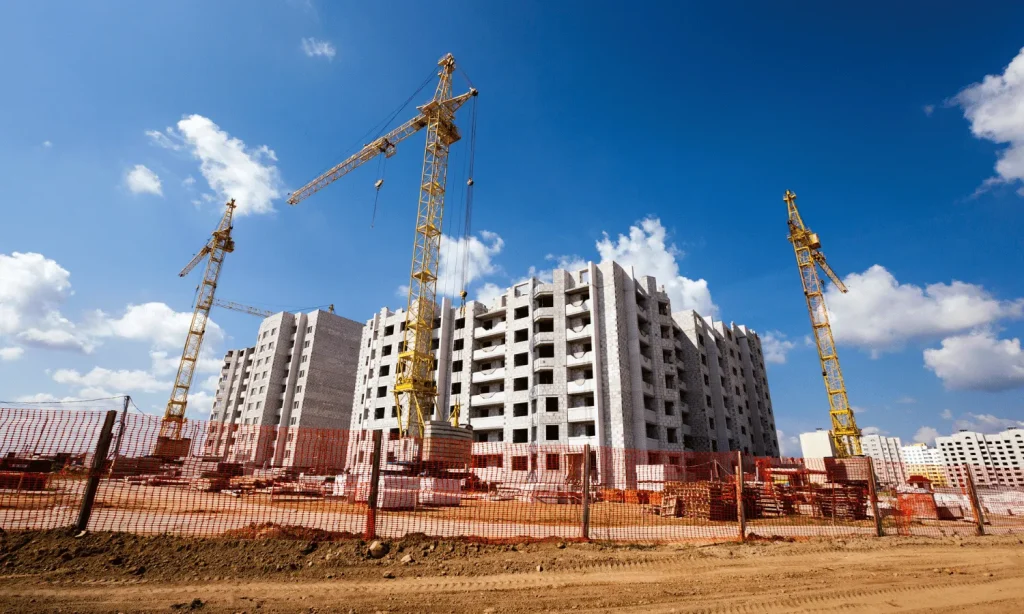A construction management degree is considered one of the most valuable qualifications in today’s building and infrastructure sector. It prepares the students with knowledge to organize and lead projects, manage budgets, organize teams, and make sure that construction work is done safely, on time, and within budget. As the industry continues to expand, many companies offering construction management services actively seek qualified graduates who can handle the complexity of modern projects. This demand makes the degree a strong career option with long-term security and excellent earning potential.
In addition to the short-term employment opportunities, a degree in construction management can offer long-term returns, opportunities to access senior management positions, area specialization, such as job planning or sustainable buildings, and allow a graduate of the program to work on residential, commercial, industrial, and civil projects. Although it involves dedication and effort, the degree provides a sure payoff to the individuals who desire a secure, fulfilling, and meaningful profession in the construction industry.
Understanding a Construction Management Degree
A construction management degree is intended to equip learners with leadership in the building and construction industry. It is unlike general engineering or business degrees, as it is narrower, specifically the skills that it needs to manage construction projects.

This kind of coursework may include:
- Management and planning of projects.
- Construction laws and fire codes.
- Cost estimating and budgeting.
- Technology and materials in construction.
- Legal issues and contract management.
- Team coordination and leadership.
This combination of technical expertise, management abilities, and practical applications helps ensure that the graduates are well-equipped to deal with the dynamics of construction projects.
Career Opportunities with a Construction Management Degree
Among the best arguments to take this degree is the extensive list of career choices it provides. Graduates can work in different positions, including:
- Construction Manager/Project Manager: Managing projects from planning through to completion.
- Estimator: Creating an estimate of the cost of labor, materials, and equipment.
- Site Superintendent: This is someone who oversees the daily operations of a building site.
- Facilities Manager: Maintenance and post-construction building supervision.
- Sustainability Consultant: Green building tips and energy conservation.
The degree is very versatile in that these roles can be offered in residential, commercial, industrial, and civil construction projects.
Job Market Demand
The U.S. Bureau of Labor Statistics (BLS) reports that construction managers will continue to be employed at rates 5% higher between 2022 and 2032, which is higher than the projected rates of most jobs. This has been caused by the increasing demand for infrastructure, the development of new housing, and green buildings.
Besides, the majority of present-day construction managers are approaching retirement, which allows younger professionals to replace them, providing those having a degree with a competitive advantage.
Salary Potential
Among the most desirable job perks of a construction management degree is the pay. According to the BLS, in 2022, the median annual wage of construction managers amounted to approximately $104,900, with the top 10% earning more than $170,000.
The influencing factors on the salary include:
- Location (urban areas are usually more expensive)
- Projects are handled in terms of size and type.
- Red level of experience and certifications.
- Green building or large-scale infrastructure Profiles Specialization.
In comparison to the majority of other degrees, construction management has great payoffs in the form of high earning potential.
Skills You Gain
The construction management degree gives you a wide range of skills that are applicable both in the construction industry and in the wider industry. These include:
- Management and Communication: Co-ordination of various teams.
- Budgeting and Financial Management: Maintaining a project on a financial basis.
- Problem-Solving: Questions that come up in the course of construction will be resolved.
- Technical Knowledge: Knowledge of blueprints, materials, and techniques.
- Regulatory Expertise: Assurance of adherence to building codes and other standards of safety.
The skills make the graduates of the courses valuable in the construction business and also in project management in other aspects.
Advantages of a Construction Management Degree
- High Demand: Increasing demand for skilled managers in a booming industry.
- High Earnings Potential: Competitive pay as compared to others.
- Flexibility of Career: Residential, commercial, and civil projects.
- Leadership Possibilities: First-hand participation in the decisions and project results.
- Pathway to Entrepreneurship: You can open your own construction company with the right experience.
Challenges to Consider
Even though a construction management degree has numerous advantages, one should be aware of the possible pitfalls:
- Education Cost: Tuition fees and other expenses may be high, but in most cases, it is offset by the long-term income.
- Studying Workload: The course involves learning technical and managerial material.
- Stressful Work: Construction managers are usually faced with deadlines, budget constraints, and working under stress.
- Competition: Large projects usually demand years of experience so that the new graduates can join as an assistant or a junior before they can be promoted.
Alternatives and Complementary Paths
Others who are not sure of taking a full baccalaureate need to consider the following options:

- Entry-level jobs can be achieved using associate degrees in construction technology.
- Career paths associated with engineering or architecture degrees are available.
- Credentialing can be improved through certifications, e.g., the Certified Construction Manager (CCM) or Project Management Professional (PMP).
In other instances, one can work in a management position after years of experience in construction and lack a degree, but has an advantage with formal education.
Is It the Right Fit for You?
The degree of construction management is the best course of study that should be undertaken by people who:
- Work and like solving problems.
- Be well organized and a leader.
- Cares about both technicalities and overall planning.
- Function well in ever-changing and hectic conditions.
Provided that these attributes match your strengths, this degree can become a step towards a well-paid and fulfilling career.
Conclusion
Is construction management, therefore, a good degree? It is highly likely to be yes. A degree in construction management is a great option for future professionals in the sector because it is in high demand, offers good salaries, and has dynamic career prospects. Though the way has its disadvantages like cost, competition, and strain, the disadvantages are much less when compared to the long-term gains.
To the people who enjoy the process of building, leadership, and problem-solving, construction management is not merely a good degree; it is potentially a degree that can help craft a successful and rewarding career.
FAQs
Is a Construction Management Degree Worth It?
Yes, a degree in construction management is a good investment for a person who wants to be a leader in the field of construction. It has a high job demand and salary potential, and career growth.
How Long Does It Take to Earn a Construction Management Degree?
The majority of bachelor’s courses in construction management last four years. Associate degrees (two years) or accelerated programs are also available at some universities.
What Can You Do with A Construction Management Degree?
Graduates can work as construction managers, project managers, cost estimators, site superintendents, or facilities managers. The degree also opens pathways to consulting or starting a construction business.




